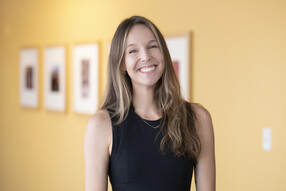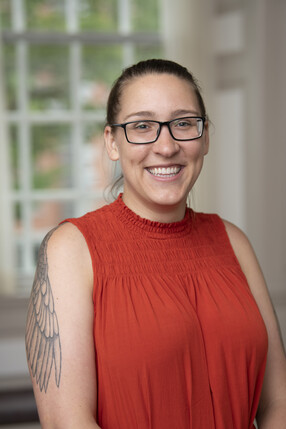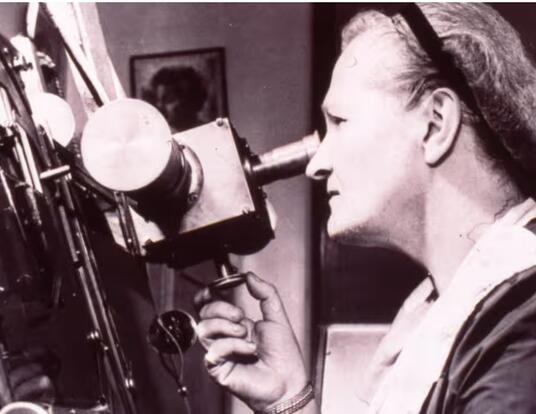Powerful Allies
Office of Student Affairs and Office of Student Services put GSAS students at the center of all they do

Earning a degree from Harvard’s Graduate School of Arts and Sciences (GSAS) is a demanding endeavor. For many students, research and teaching at the highest level become the center of their lives for the better part of a decade.
At the same time, GSAS students have a lot going on beyond their research and teaching. Some are raising children or caring for elders. Others live with a variety of wellness challenges. And some wrestle with a family or financial crisis.
In their effort to stay on the path to academic success and personal wellness, students have two powerful allies: the Office of Student Affairs (OSA) and the Office of Student Services (OSS). Although the two groups have different areas of focus, the staff of both share a common commitment to supporting students and enabling them to flourish at GSAS.
Meeting Milestones
The Office of Student Affairs oversees student academic status, progress towards degree, and adherence to GSAS policies. The experience of PhD students in the nearly 60 different fields at GSAS varies widely—as do their personal circumstances. OSA works closely with each department on behalf of students to keep them moving on the academic timeline.
A big piece of our work is to look at [bureaucratic] processes, both big and small, with a fresh set of eyes and to suggest changes based on what students need.
–Shelby Johnson
“We support students in reaching their respective academic milestones,” says Patrick O’Brien, assistant dean of student affairs. “That can mean adjustments to their course loads, meeting degree requirements, preparing to teach, and many other points on their GSAS journey. We partner with department administrators, the registrar’s office, faculty members, and others to give them the information and resources they need to help students be successful.”

The office also looks at policies and procedures with an eye toward making them more equitable and accessible.
“Institutions of higher education can be notoriously bureaucratic,” says Shelby Johnson, assistant director of student affairs. “A big piece of our work is to look at those processes, both big and small, with a fresh set of eyes and to suggest changes based on what students need. For example, before 2020, there wasn’t a clear process for GSAS students to waive late fees due to circumstances beyond their control. It’s important that folks meet academic calendar deadlines, but sometimes life does happen, and a $40 fee can be a lot when you’re in graduate school. We developed a policy and worked with department administrators to get the word out. Tons of students use it now.”
Although OSA primarily partners with academic departments throughout GSAS, the staff there sometimes work directly with students to help them navigate School policies when life intervenes.
“We might have a student that just had a new addition to their family,” Johnson explains. “And so, they've decided they want to take some time to step away from graduate studies. Do they want to take leave for a term or a few weeks of time off? What will progress look like when they come back? How will it impact their time to degree? We can discuss options such as G-year adjustments and the Parental Accommodations and Financial Support program.”
Much of OSA’s work goes on behind the scenes in the form of planning and organization that often takes place months in advance. As a result, students usually don’t see the effort that goes into making their GSAS experience a little less bumpy. That’s okay with Staff Assistant Sarah Banatoski.
“Last year’s International Summer Institute for new international PhD students presented a lot of challenges in terms of timing, the availability of other offices—even the weather, which was really hot,” she says. “We had to pivot quickly and readjust our plans. When the students arrived, all they saw was a program that went smoothly and was catered specifically to them. I’ve seen so many of those students since then, and they always make a point to tell me how much they appreciated the program.”
The GPS of GSAS
Thankfully, when things aren't going smoothly, the Office of Student Services (OSS) is there to step in and help. Located in room B-2 of the Student Center at Harvard Griffin GSAS, OSS is a safe place for students to connect with resources that address both academic and personal concerns.
“It's not students’ job to know all of the resources and supports that exist at Harvard; that's our job,” says Program Coordinator Vicky Mooney. “We provide guidance whether folks are in their first year at GSAS, their tenth year, and anywhere in between. That’s why our office motto is ‘the GPS of GSAS.’”
Like OSA, student services collaborates with offices throughout the School to improve student life. Most often, though, OSS staff work directly with students themselves.
“We do a lot of high-touch work,” says Care Case Manager Keenan Bailey. “Sometimes that means dealing with sensitive situations. Other times it’s just reaching out, even when it turns out that student doesn’t need anything. It’s about showing that we care.”

Mooney and Bailey say that students come to OSS with concerns that range from struggles with finances and housing, to conflicts with academic peers and advisors, to trouble with mental and physical health. While the severity of the issue may vary, OSS staff takes each concern seriously, giving students the time and attention they deserve.
“So much of our work is about normalizing help,” Mooney says. “We want students to understand that they are not alone, they’re not the only person coming to us with this problem.”
Mooney and Bailey do a lot of listening and use their knowledge of resources on and around campus to connect students with the help and support they need. But their work doesn’t end there. OSS follows up with department staff and faculty as well as colleagues in other offices at Harvard to make sure there are people looking out for students after they leave B-2.
“After we refer them out, we connect with faculty and staff about how to notice when students are in distress,” Mooney explains. “We talk to them about how they can support their students. We extend the impact of what we do by empowering others. It’s more effective to do this work in teams than in silos.”
A Little Bit of Joy
Whether working with departments on policies and procedures or one-on-one with stressed-out PhD candidates just trying to make it through their dissertation, OSA and OSS staff share a passion for making students’ path to graduation a little smoother.
“Success to me is when a student or department doesn't have to reach out with questions because our policies are so transparent, the information they need is so accessible, and the path to degree is so well mapped out,” says Johnson. “It’s about collaborating across all the different GSAS offices—financial aid, communications, student services, the Office of Equity, Diversity, Inclusion, and Belonging—to holistically support the student experience.”
I feel like I’ve made a difference when I can give our students a little bit of joy.
–Vicky Mooney
Bailey says that he gets as much from his interactions with students as he hopes they do.
“Every time I connect with students, I understand more about how they operate, how they work, and what challenges they face,” he says. “I take something away from every exchange and try to become a better version of myself.”
Banatoski’s satisfaction comes simply from knowing that the work she does helps move students one step closer to their degree.
“We confront a new set of challenges every day,” she says. “It’s exciting to brainstorm and find solutions. It’s even more exciting to take a step back and see how those solutions will help future generations of students reach their goals.”
Mooney says that whenever possible, they like to bring some joy to a student’s day—often in the form of their goldendoodle, India.
“I love to bring him to the office with me,” they say. “It’s such a surprise when students see him through the glass. They're like, ‘Oh, my God! This dog just made my day. Totally turned it around.’ I feel like I’ve made a difference when I can give our students a little bit of joy.”
That desire to bring joy to students—and to take joy in working with them—is why Mooney and their colleagues say that what they do is more than a job; it’s a call to service that ultimately flows from a love of people.
“People are multifaceted like crystals,” Mooney says. “You turn it a bit and see all these different sides shimmer in the light. That’s what I love about our work with students. I get to see them feeling their worst, and I also get to see them turn it around and experience the joy of discovery, whether they’re studying astrophysics or public health or the classics. It’s fascinating—and fulfilling!”
Photos by Tony Rinaldo; Banner courtesy of Shutterstock
Get the Latest Updates
Join Our Newsletter
Subscribe to Colloquy Podcast
Simplecast





